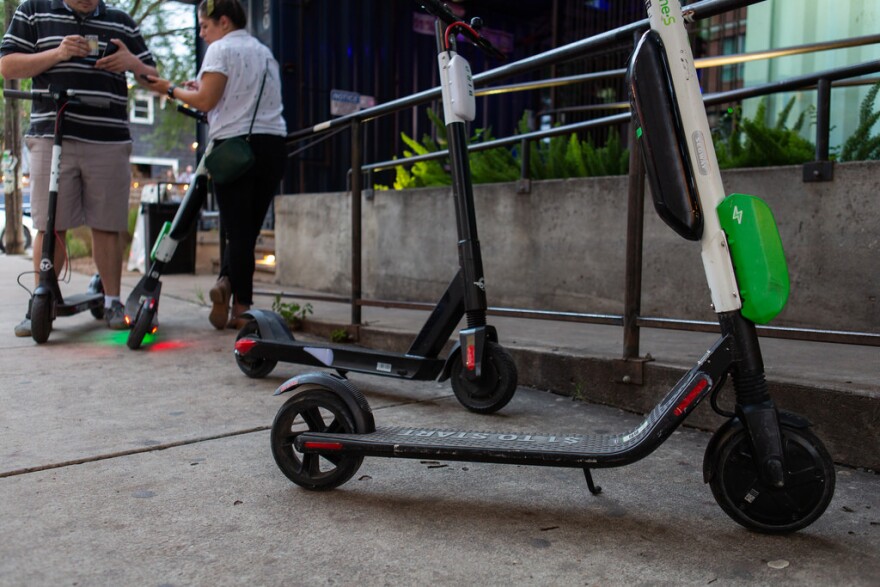Joe Cardillo was riding a Lime scooter home from work last month when it just stopped and he fell off.
"I landed on my knees and kind of fell forward and scraped up my hands," the 24-year-old East Austin resident said. "Then [I] kind of rolled and then fell into the street on Riverside."
Cardillo said he slid about 5 to 10 feet across the pavement: "It was pretty brutal."
He said he was going about 15 mph when the front wheel locked up, but he didn't feel like he needed to go to the hospital.
RELATED | MAP: Here's Where Everyone Rode Dockless Scooters In Austin In 2018
Fortunately, Cardillo said, there weren’t any cars on the road when he fell, but he can’t help but wonder: What if there had been?
"If it happened to me, it could happen to other people," he said.
Results from a study underway by the City of Austin and the Centers for Disease Control and Prevention could help reduce those chances.
People generally think the CDC just deals with infectious disease outbreaks and the like, but it's not that unusual for it to do this sort of thing, said Philip Huang, medical director and health authority for Austin Public Health. According to Huang, the prevalence of scooter incidents make the dockless devices a public health issue.
There's currently not enough research on dockless scooters to regulate them effectively. Austin is the first city in the nation to help conduct a CDC study on them. Researchers are looking into 160 scooter-related incidents between September and November 2018. Huang said that covers some of the most accurate incident data, since hospitals in Austin started consistently tracking dockless scooter injuries then.
Huang said researchers are collecting information on the circumstances, level of severity and injury, and whether people were hospitalized or had follow-up care.
Findings from the study will be presented to Austin City Council around March – a little more than a year after the scooters descended on Austin. The transportation department said results will help "refresh" a dockless mobility ordinance that was finalized in November and help the city develop safety standards.
If researchers find, for example, that texting and riding causes accidents, the city could add enforcement rules to the ordinance allowing police to issue tickets, said Jason JonMichael, the assistant director of the Austin Transportation Department.
City officials asked the CDC to help conduct the study after scooter companies began entering the Austin landscape sooner than expected. The city had been in the process of launching a pilot program for dockless bikes and scooters, JonMichael said, which would have eased the vehicles onto Austin streets. Now the city is catching up.
"[Scooter companies] felt that they had the legal precedent to move forward with the launch," he said, so the city decided to implement the permit process.
Seven dockless mobility companies own the estimated 13,370 permitted dockless devices in Austin, a majority of them scooters. Users took nearly 2.3 million rides last year.
As of now, the city does not limit the number of scooters a company has in Austin as long as the company follows city regulations. Scooters are, however, limited in certain areas.
Lime and Bird have the largest fleets in the city. JonMichael said the more scooters there are, the more data the CDC can collect. He said the city is working with all scooter companies to improve Austin's mobility data access.
"There [are] unique opportunities to work with these companies," he said, because they can share vital information for this new mode of transportation.
Cardillo said he called Lime after his fall and was offered a $5 coupon.
"I literally ... just laughed, and I was just like, OK, that's not what I expected," he said.
Lime would not make anyone available to comment. Cardillo said he's trying to play it safer now.
"I definitely know I got really confident on those things," he said. "but now I'm very cautious."
But for now, he’s still doing his commute the same way just with a different company.
"I can get to work in like 10 minutes," he said, "and I don't want to pay for parking and drive for 20 minutes, for sure."







